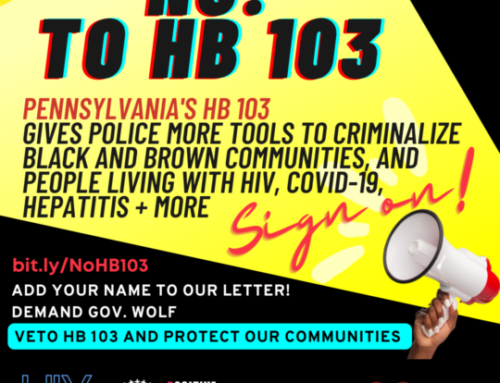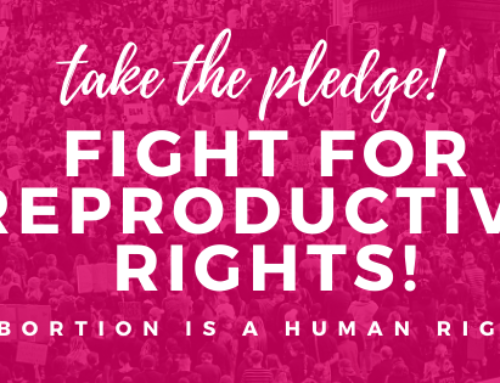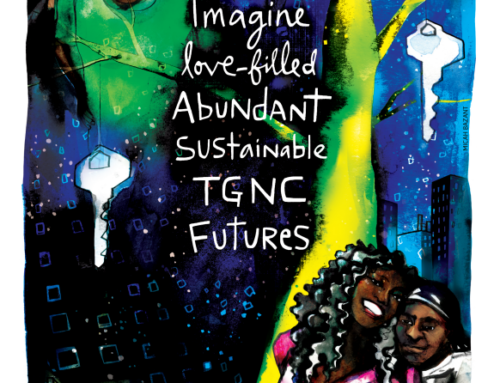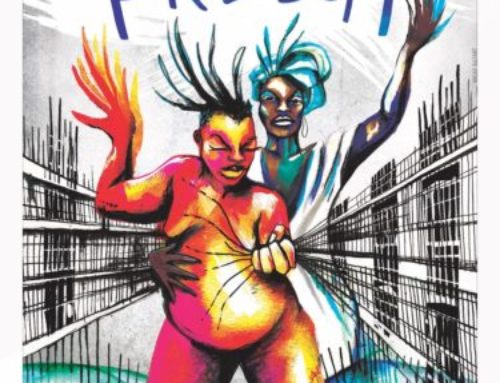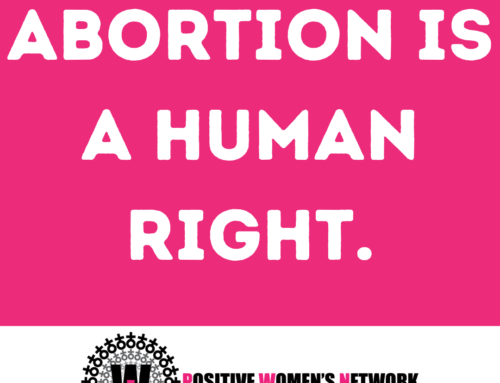TODAY, October 23, 2019, is Positive Women’s Network – USA’s sixth annual Day of Action to End Violence Against Women Living with HIV.
Sign On to Endorse the Day of Action to End Violence Against Women Living with HIV
More than three dozen organizations and even more individuals have signed on to endorse the 2019 Day of Action. Have you? Click below to learn more and sign on as an endorser.
| Learn more and sign on to endorse the Day of Action to End Violence Against Women Living with HIV! |
For endorsing organizations and individuals who pledged to write a blog, statement, or press release or to share about the Day of Action on social media, please send links to communications@pwn-usa.org, and/or tag PWN on social media (@uspwn on Twitter; @pwnusa on Facebook)!
Check Out Our New Day of Action Factsheet on
Trans-Centered Reproductive Justice!
 We are thrilled to release our new factsheet on trans-centered reproductive justice in time for the Day of Action to End Violence Against Women Living with HIV!
We are thrilled to release our new factsheet on trans-centered reproductive justice in time for the Day of Action to End Violence Against Women Living with HIV!
The needs of transgender, gender non-conforming, and non-binary (TGNC) people must be intentionally and meaningfully integrated into reproductive justice advocacy. TGNC people face pervasive social and economic discrimination and are targeted for violence by individuals as well as law enforcement and the State- the very institutions that are supposed to protect them. Further, TGNC folks who are also people of color, immigrants, sex workers, living with disabilities, or living with HIV face additional forms of marginalization, discrimination, and violence.
We define trans-centered reproductive justice as an approach to reproductive justice that centers the experiences, needs, and power of those whose genders and sexualities are most marginalized. In this factsheet, we explore each aspect of the definition of reproductive justice to outline some key issues that impact the TGNC community.
| View our new factsheet here! |
Join Us in Observing the Day of Action Online and In Person!
Join us on Twitter today 10/23 at 1pm EDT/12pm CDT/11am MDT/10am PDT for a Twitter chat with our partners from Black Women’s Health Imperative, Futures Without Violence, If/When/How, The Well Project, and URGE!
Follow the hashtags #EndVAWHIV and #ReproJustice to join the conversation!
Want to do more to help us get the word out on social media?
We have a social media toolkit for you to use to help spread the word, with the Day of Action logo; sample Facebook and Instagram posts and tweets; factsheets; questions for Wednesday’s Twitter chat; and more!
And change your profile picture to the Day of Action logo! You’ll find it in the social media toolkit.
| Check out the Day of Action social media toolkit here! |
Find Online and In-Person Events
 See if there’s something going on in your town!
See if there’s something going on in your town!
Are you hosting or participating in a Day of Action event and don’t see it listed on this page? Contact communications@pwn-usa.org with all the relevant info to have it added!
| Visit the Day of Action events page here |
More Resources for the Day of Action
Here are some great resources PWN and our members have produced for the Day of Action for you to peruse, share, and/or use in events, meetings, or support groups! Check them out.
PWNCares: Living and Loving Well with HIV
 Featuring Tiommi Luckett, Venita Ray and Teresa Sullivan, this video explores the intersection of HIV and intimate partner violence, and comes with a discussion guide for use in meetings, events, or support groups. Women living with HIV experience intimate partner violence (IPV) at twice the rate of women in the general population, and women in abusive relationships are 48% more likely to acquire HIV. Hear from survivors of intimate partner violence and HIV and explore the intersections of HIV, IPV and structural violence.
Featuring Tiommi Luckett, Venita Ray and Teresa Sullivan, this video explores the intersection of HIV and intimate partner violence, and comes with a discussion guide for use in meetings, events, or support groups. Women living with HIV experience intimate partner violence (IPV) at twice the rate of women in the general population, and women in abusive relationships are 48% more likely to acquire HIV. Hear from survivors of intimate partner violence and HIV and explore the intersections of HIV, IPV and structural violence.
| Watch the video and download the discussion guide here |
Violence Against Women Living with HIV Factsheet
Women living with HIV are five times more likely to have Post-Traumatic Stress Disorder (PTSD) and twice as likely to have been the victim of intimate partner violence compared to national samples of American women, according to a UCSF meta-analysis of the effect of trauma on health outcomes released in early 2012. Study analysis also revealed that women living with HIV have between two and six times higher rates of various types of child and adult sexual and physical abuse – evidence of the link between violence and increased vulnerability to HIV.
| Read and download the factsheet here |
#PWNSpeaks Blogs
 We can live again
We can live again
by Angel Stetson
“When another person constantly tells you that you are not worthy or that you deserve the treatment and abuse, do not believe it! Last year, I listened to that chatter. I was broken. I allowed verbal garbage from those around me to settle deep into my soul corrupting all the good I knew I was inside me. I justified the physical abuse. I started speaking about myself using that same hurtful language…
“Today, a year later, I learned to hang around with more stable and empowering people. I have boundaries today. I feel empowered to speak up and say, “It is not ok to talk to me like that”, or “Do not come into my personal space to abuse my mental health with your meaningless chatter or put your hands on me.” A lot of my abuse was from not being able to let go of toxic relationships for fear of missing out on human interaction.”
| Read more |
 A Woman’s Pain in Intimate Partner Violence
A Woman’s Pain in Intimate Partner Violence
by Tana Pradia
“As a woman, I lived through and survived intimate partner violence. I remember the day we met. He was so charming and sweet. After moving in with him, he was the perfect mate. Within six months, he started beating me every day. He sat in the parking lot of my job to see if I was leaving. When I arrived home, he had drugs sitting on the table. He prevented me from talking to my children and my family. He told me he was the only one that loved me, and he was protecting me from everyone…
“For many years, I was abused by family and my mother. It does not just come from our mates; it also stemmed from an upbringing with abuse. No one believed me. I am sharing this story because intimate partner violence is real when it comes to women living with HIV.”
| Read more |
 Mad Love
Mad Love
by Connie Shearer
“October 23, 2019, is National Day to End Violence against Women Living with HIV.
This year was a rough one for me, and I thought it was time to discuss violence through the lens of a client.
A case manager is in many cases, the first point of contact for every person living with HIV who is searching for services and resources. In some cases, those case managers become the barriers that cause long-term survivors to fall out of care and why newly diagnosed people do not get into care.
Why: Trauma, and the need for trauma-informed healthcare professionals.
Every single person reaching out seeking services has been traumatized in some way, and now they are putting themselves at the mercy of one person. How that person reacts to them and their behavior will decide if they stay in care or not.
How: In some larger cities, organizations are writing policies with language that protects the employee while they put the client at risk. Staff is not trained in trauma-informed care.”
| Read more |



.png)
